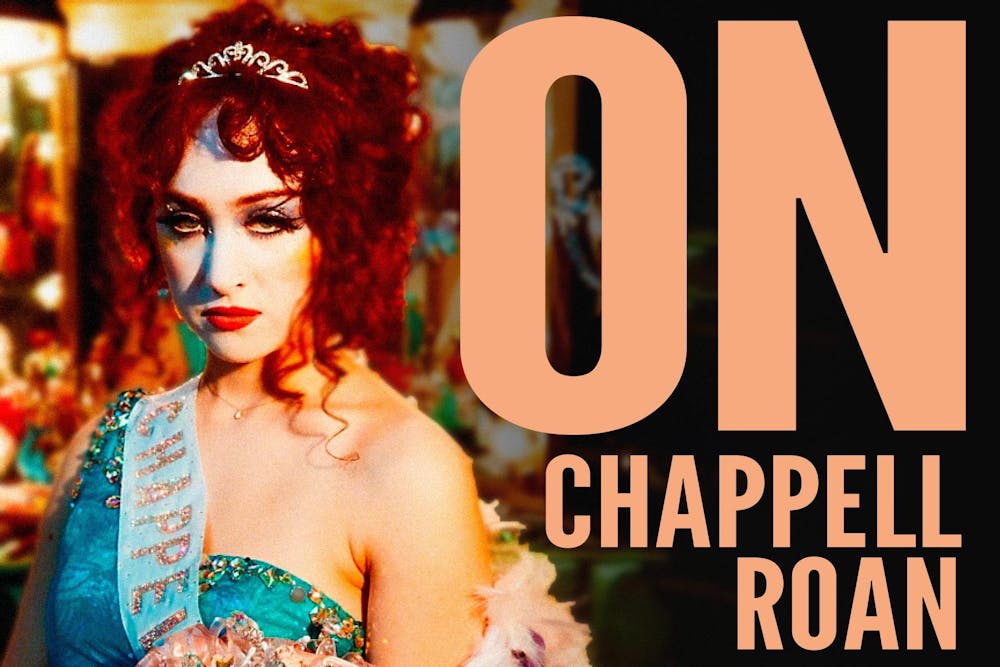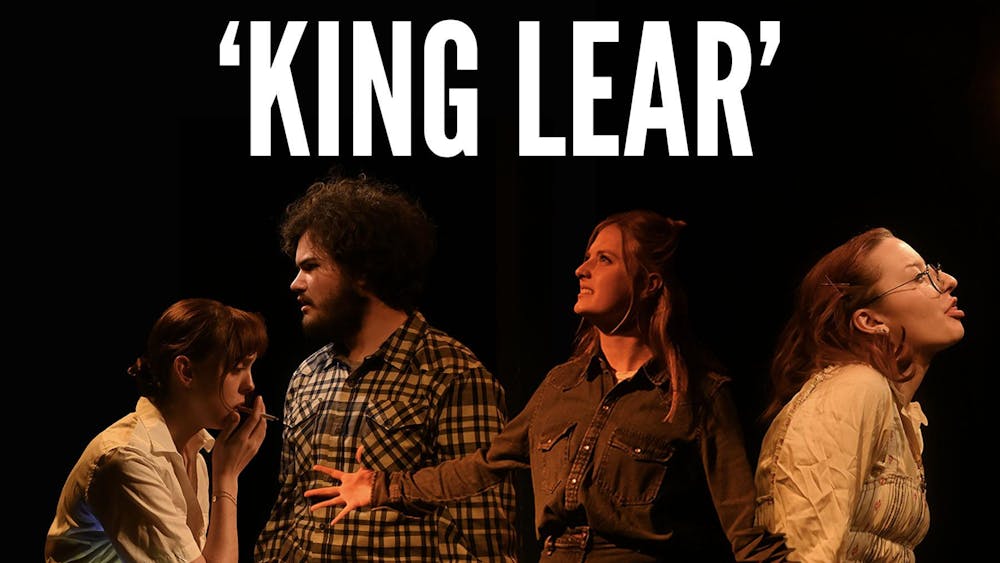I am, by no means, a Chappell Roan scholar. I listened to the album, and I even liked it, but it sounds so much like early Lady Gaga to me that whenever I turn it on, I find myself wishing I was just listening to “The Fame” instead. She also has some musical tics that really get under my skin, like how she never lets the music and lyrics breathe — there’s always something butting in, e.g. the “play the f*cking beat” ad libs on the track “Femininomenon.” Nevertheless, I like her. She’s able to evoke the girl-in-cookie-monster-pajama-pants, the girl-who’s-lived-with-grandma. It’s warm, it’s cozy, and it’s essentially midwestern.
Speaking of “midwestern,” I got into a bit of a debate with Scene writers Andy Ottone and Ayden Kowalski about whether “The Rise and Fall of a Midwest Princess” [by the way, what other popstar is referencing Edward Gibbon!?] counts as a concept album. Their verdict was a firm “no.” Still, I think the lyrics of its songs are meant to be taken as pertaining to a single female protagonist other than Roan herself — so although there’s no plot per se, there’s enough thought put into character (enough “concept” of character, if you will) that I think it might be called a concept album in good faith.
I’m reminded of how Mitski used to say that when men write great ballads, they’re called great storytellers, but when women write great ballads — for whatever reason — people assume they’re speaking from personal experience. I wonder if the hesitation to think of “The Rise and Fall of a Midwest Princess” as a concept album is a side effect of that same phenomenon, a conception of female artists as “feelers” rather than “thinkers.”
Nevertheless, I think Andy and Ayden might have been on to something when they argued that character alone a concept album does not make — you need plot too. Take Lana Del Rey as an example. In some real sense, Lana Del Rey (the character and the persona) is very different from Lizzy Grant (the human being/the performer herself). Does that mean every Lana release is a concept album, though?
Another thing I like about Chappell Roan is that you really feel the lack of media training in her career and the absence of a social media manager on her team. You can tell she doesn’t have to check with anyone before hitting “post” on TikTok, I mean. She’s sort of like a white, liberal Azealia Banks in that way — a type of celebrity we don’t get much any more.
The recent controversy she’s sparked, i.e. her irascibility on the red carpet and her comments about the election, hasn’t fazed me at all. Chappell Roan simply embodies a “rock star” mode of fame that the Zoomers just aren’t used to. The millennials couldn’t quite handle it either: they demonized Courtney Love, and perhaps the only reason they tolerated Amy Winehouse was because she died before she could wear out their nerves.
People these days claim to want “authenticity” from their celebrities (remember how much attention Jennifer Lawrence was getting for saying inane, “cool girl” stuff about pizza), but ironically, they only want it at the surface level. When Chappell Roan gets genuinely ticked-off at a paparazzo, even though it’s a real reaction, audiences get mad — they claim to want authenticity, but when they actually get it, they hate it.
Chappell Roan feels reactionary in that — despite all the negative press, despite all the pressure from consumers — she can’t help but be authentic.
I think we should look at her politics in light of that fact. People these days claim to want “authenticity” from their celebrities, but if that “authenticity” is incongruous with Democratic talking points about how we should “vote blue no matter who” and how “democracy’s on the ballot,” they’re actually quite opposed to authenticity.
Audiences used to have a notion of “the artistic disposition.” Celebrities weren’t expected to issue fatwas on public policy, because we understood that the skillset which makes one a good artist is very different from the one which makes you a good statesman. (There were, of course, celebrities like Sinatra and Fonda who went out of their way to involve themselves in politics, but they were exceptional cases.)
Now, mobs on Twitter beckon celebrities to “speak up.” That creates a minefield for artists like Roan who are genuinely authentic and don’t bother with social media managers. They heed the siren call and are inevitably smashed against the rocks because they’re essentially unorthodox — the rockstars and true artists tend to be.
Modern ideas about the celebrity’s duty to “use their platform” seek to transform the rock star and the true artist into a dogma peddler. Chappell Roan is either too smart or too stupid to fall for it.










